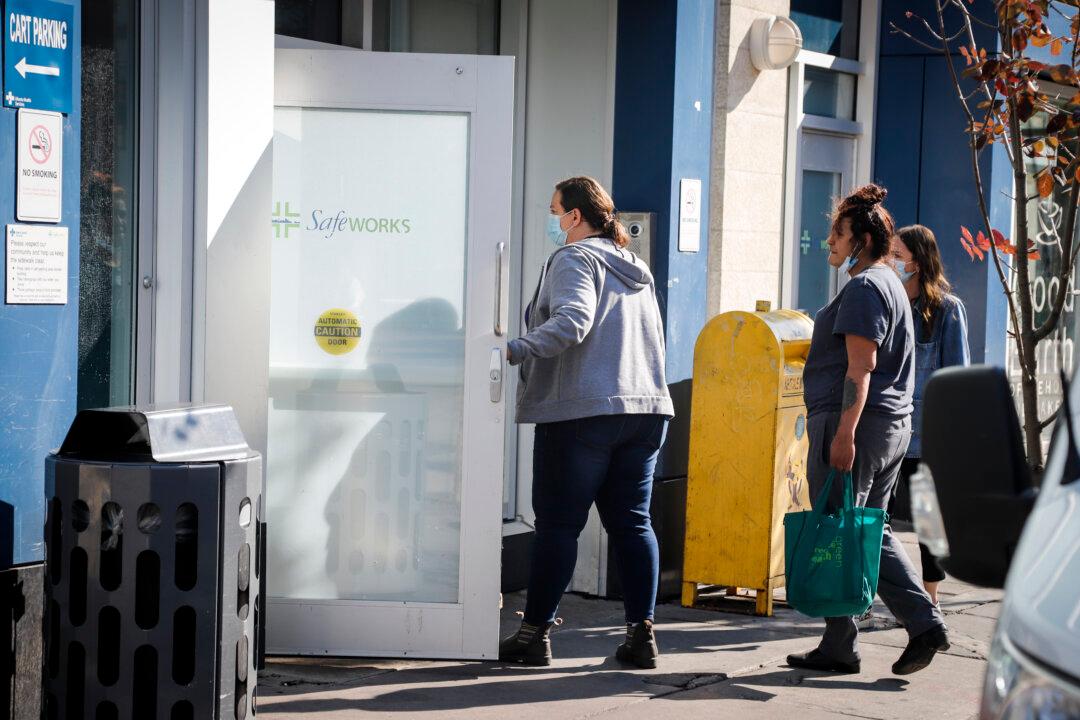United Conservative Party Leader Danielle Smith, running for reelection as premier of Alberta, announced she will introduce a Compassionate Intervention Act to allow family members of drug addicts to petition the court for involuntary treatment.
“The sad reality is that despite the opportunity created by a booming economy, Alberta is also grappling with the effects of untreated mental health issues and the ongoing addiction crisis that jurisdictions are experiencing all over North America,” Smith said at a May 15 news conference in Calgary.





